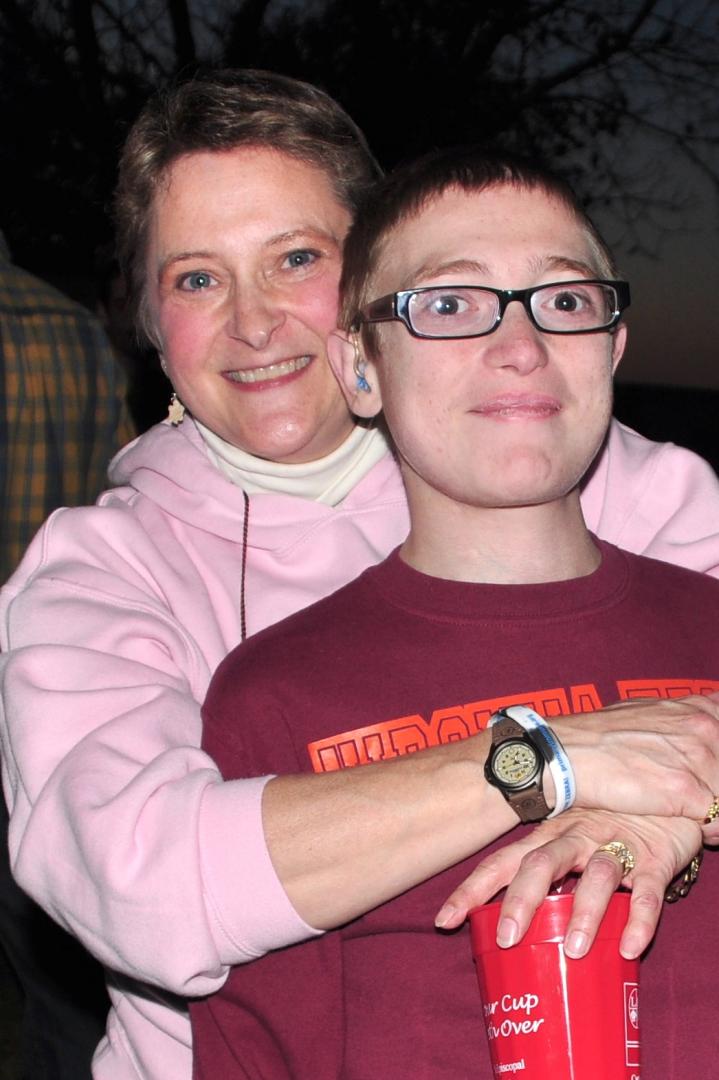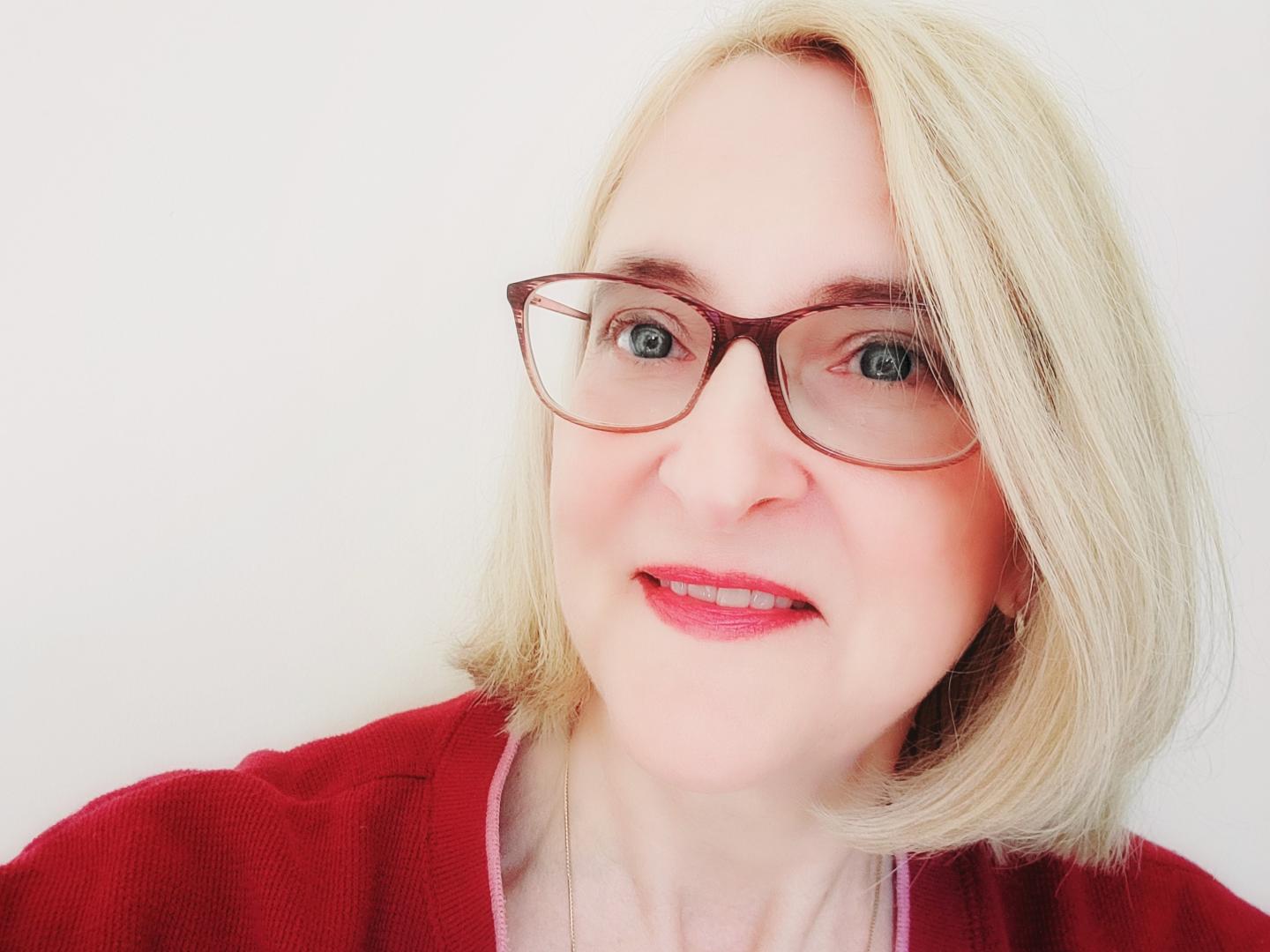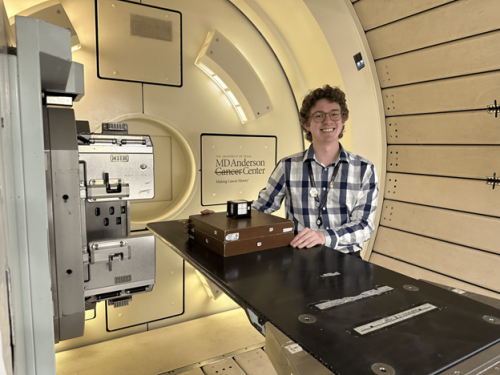
-
Understanding primary immunodeficiency (PI)

Understanding PI
The more you understand about primary immunodeficiency (PI), the better you can live with the disease or support others in your life with PI. Learn more about PI, including the various diagnoses and treatment options.
-
Living with PI
-
Addressing mental health
-
Explaining your diagnosis
- General care
- Get support
- For parents and guardians
-
Managing workplace issues
- Navigating insurance
-
Traveling safely

Living with PI
Living with primary immunodeficiency (PI) can be challenging, but you’re not alone—many people with PI lead full and active lives. With the right support and resources, you can, too.
-
Addressing mental health
-
Get involved

Get involved
Be a hero for those with PI. Change lives by promoting primary immunodeficiency (PI) awareness and taking action in your community through advocacy, donating, volunteering, or fundraising.
-
Advancing research and clinical care
-
Research Grant Program
-
Consulting immunologist
-
Diagnosing PI
-
Getting prior authorization
-
Clinician education
-
Survey research
-
Participating in clinical trials

Advancing research and clinical care
Whether you’re a clinician, researcher, or an individual with primary immunodeficiency (PI), IDF has resources to help you advance the field. Get details on surveys, grants, and clinical trials.
-
Research Grant Program
When Barb Ballard gave birth to her son Ray in 1994, doctors provided him with newborn screening. The screening revealed nothing unusual, and, at the time, Ballard considered the screening “a blessing of good genetic health.”
Ten months later, Ray lay in the pediatric intensive care unit on a ventilator struggling with pneumocystis (PCP) pneumonia, a serious fungal infection that causes fluid build-up in the lungs. Doctors diagnosed Ray with X-linked severe combined immunodeficiency (SCID), a life-threatening primary immunodeficiency (PI) that results in little to no immune function.
“I can remember asking when he was diagnosed with SCID why it hadn’t been picked up on his newborn screening test. I naively assumed that anything this serious would have already been being screened for,” said Ballard in the Newborn Screening SPOTLight podcast, presented by the Newborn Screening Translational Research Network (NBSTRN).
In the podcast, hosted by Drs. Amy Brower and Kee Chan, Ballard describes her journey as a parent of a child with SCID and an advocate for SCID newborn screening and families affected by SCID. She is the director of SCID Angels for Life, a non-profit dedicated to the empowerment of families affected by SCID.
A medically complicated child, Ballard’s son Ray battled poor health throughout his life. He underwent three bone marrow transplants with his mother as his donor and experienced severe graft versus host disease (GVHD), which damaged his gastrointestinal (GI) tract. He received nutrition through a gastrostomy tube (G-tube) and intravenously (IV) and required immunoglobulin (Ig) therapy. Antibiotics, which saved Ray’s life, left him hearing-impaired.
In the midst of caring for Ray, Ballard focused on SCID advocacy. She started the first listserv for parents of children with SCID, joined the Immune Deficiency Foundation (IDF) Board (where she served for 18 years), developed the SCID Initiative program, and advocated for SCID to be included on the national newborn screening panel.
In 2006, she spoke to the Federal Advisory Committee on Heritable Disorders in Newborns and Children, where she called for newborn screening for SCID and emphasized the poor quality of life for survivors of a late diagnosis. Her testimony followed that of two top immunologists and SCID experts – Dr. Rebecca Buckley and Dr. Jennifer Puck – who described the high mortality rate associated with SCID to the Committee.
It took several years and many more meetings before the Committee heeded the requests and made the recommendation for SCID to be on the National Recommended Uniform Newborn Screening Panel (RUSP). However, that recommendation only meant that states should consider the inclusion of SCID. The states were not bound by law to include it. Each state’s legislature had to vote to include it on that state’s newborn screening panel.
“That’s when the real battle began because the advocacy had to move to every state,” said Ballard, who worked alongside other parents, encouraging them to speak out in their own states.
“State newborn screening committees and legislatures were much more receptive to the pleas of a parent from their own state, rather than a representative of a national group.”
By 2018, after several years of work by the Immune Deficiency Foundation, SCID Angels for Life, the Jeffery Modell Foundation, and individual families, all 50 states included SCID on newborn screening panels.
“SCID kind of became the poster child for a new addition to the Recommended Universal Newborn Screening Panel, as it was the first test to be added in a number of years. This was good and bad because as advocates we had no real model to follow. This was all new territory for us,” said Ballard in the podcast.
“We gave ourselves a crash course on how and why a disease is considered for addition to the panel and just put ourselves out there learning as we went along.”

As Ballard fought to ensure newborn screening for SCID, Ray grew into an active young man who didn’t let his physical limitations stop him from doing what he liked best. He earned a black belt in Tae Kwon Do, lettered three years in a row on the high school rifle team, and volunteered with the Lions Club, the Make-A-Wish Foundation, the Immune Deficiency Foundation, and the hearing-impaired community.
“His determination over his lifelong challenges became an inspiration to many people,” said Ballard. “He just always shined. Ray embraced fun and had a unique ability to empathize with others, putting their concerns over his own. He was indeed a superhero to many people.”
Ray passed away in early 2019 after his immune system declined again, but his mother hasn’t stopped fighting for him – and for other persons with a SCID diagnosis.
“SCID newborn screening is the legacy of all SCID children – from David Vetter to my own son to all of those whose stories were told in committee meetings in every state,” said Ballard in the podcast.
“As parents, we opened our lives and struggles to the committee members who had to make the decision on whether or not this disease warranted an addition to each state’s screening panel.”
As director of SCID Angels for Life, Ballard works closely with Heather Smith, founder and president of SCID Angels for Life, mother of two sons diagnosed with X-linked SCID, and long-time IDF volunteer. Smith serves as chairperson for IDF’s SCID Compass Steering Committee and SCID Compass Parent and Patient Advisory Committee, of which Ballard is also a member.
The mission of SCID Angels is to increase awareness of SCID, provide a safe environment for families to connect, grant scholarships to those affected by SCID, and provide research grants for SCID diagnosis and treatment.
Ballard said that parents find particular comfort in getting to know each other through the SCID Angles Facebook group. Many share similar experiences and provide each other with support and information.
“One thing we’ve found is that local states and communities vary greatly in the depth of information provided to a parent as well as the quality of that information when presenting a positive newborn screen result. We’ve seen some parents who have been left feeling that this is no big deal while others have been left with the impression that their child can never survive,” said Ballard in the podcast.
“There needs to be a way to get more hospitals, communities, and states to utilize the quality information that is available. SCID Angels has worked extensively with IDF on the SCID Compass project but many parents when presented with a positive newborn screen are never given this information or directed where to find it.

“It is still a very scary period for many families. They search social media for information and those lucky enough to find SCID Angels have been ever so grateful to be part of a community that stands beside them, gives them hope, and helps them navigate a new and scary medical world.”
Like Ray, some children and adults with SCID require supplemental feeding with G-tubes, utilize immunoglobulin replacement therapy, and are hearing impaired. Some suffer long-term side effects from chemotherapy like a lack of hormones when going through puberty, or a decline of the immune system.
“Even now when we have newborn screening and the kids are generally able to go into treatment healthy, there are still a lot of complications to this disease. It’s not a quick one-and-done and move-on-with-the-rest-of-your-life type of disease,” said Ballard.
“We are still learning a lot about this disease. That’s why there are so many clinical research trials needed just to keep abreast of what is happening – what’s being caused by the treatment, what’s being caused by the disease, and what’s just incidental to the fact that these are medically complicated children.”
SCID Angels works closely with researchers acting as a conduit for the needs of the SCID community. They inform researchers about commonalities across SCID families, like reverse isolation protocols and overlapping health issues with the different types of SCID. Every child’s journey informs research, said Ballard.
“It’s not the fact that researchers already have the answers. They are learning the questions as they follow our children and follow our children as they age and go into adulthood and become old enough to have their own families and move forward in life,” said Ballard.
“As a parent of a SCID child, you deal with so much that often you only tell a physician about the biggest problem that week or that day. There’s too much to go over. And consequently, physicians don’t often realize the struggles their families face. But if we point out a concern then suddenly, they’ll recognize it in more families.”
Ballard said the best resources for diagnosis and treatment of SCID include SCID Angels, IDF’s SCID Compass program, and clinicaltrials.gov. Her hope is that one day newborns will be screened for all genetic diseases affecting children.
“This would serve to empower families because as Heather and I continue to say – knowledge is power,” said Ballard.
Related resources
Sign up for updates from IDF
Receive news and helpful resources to your cell phone or inbox. You can change or cancel your subscription at any time.





The Immune Deficiency Foundation improves the diagnosis, treatment, and quality of life for every person affected by primary immunodeficiency.
We foster a community that is connected, engaged, and empowered through advocacy, education, and research.
Combined Charity Campaign | CFC# 66309




